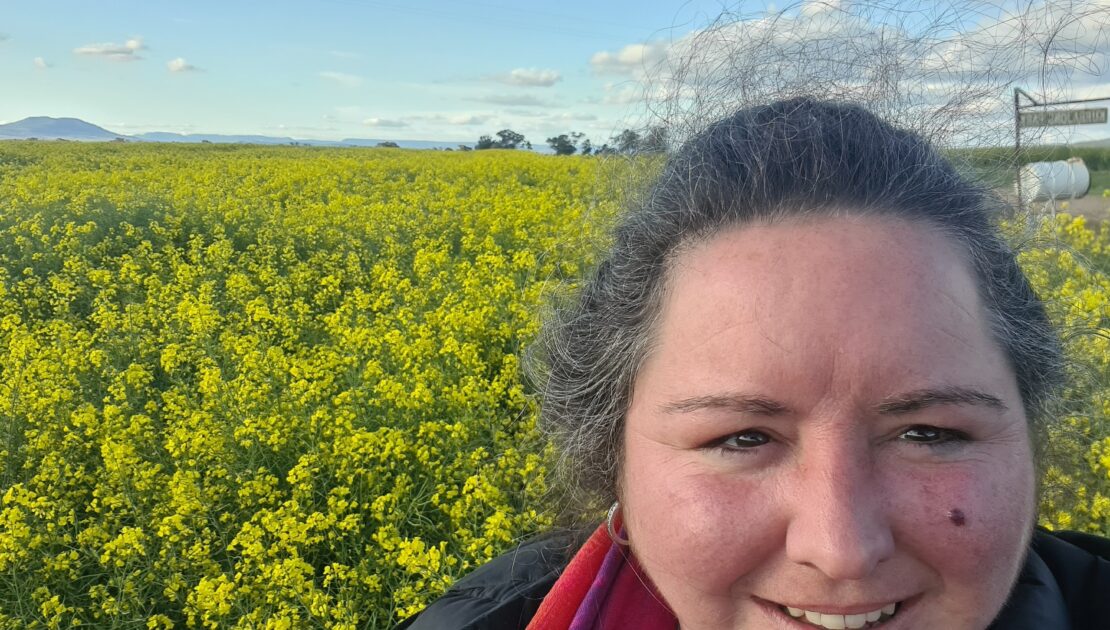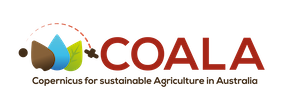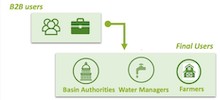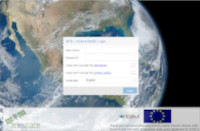- About us
- Project
- Publications
-
Deliverables

D6.4 – Promotional material
December 31, 2020DeliverablesThe aim of the communication materials is to publicise the COALA Project among potential users. This Deliverab...

D6.2: Communication and Disseminati...
December 31, 2020DeliverablesThis Deliverable is an update of the first version of the Communication and Dissemination Plan.

D4.1: Baseline Description of Pilot...
September 30, 2020DeliverablesThis Deliverable describes the pilot experiments of COALA Project. Participatory evaluation of the COALA servi...
- Media Room
-
News

COALA Project: A Success St...
August 20, 2023Blog, Evidenziato, News, Press ReleaseThe COALA Project, a European Union funded project involving a collaborative initiative between the European U...

Workshop on COALA business model
December 19, 2020News
Plenary meeting November 23, 24 and...
December 1, 2020NewsThe plenary meeting of COALA Project has been held on 23rd, 24th and 30 November 2020

Webinar: Governance of Water Scarci...
November 17, 2020NewsThanks to Copernicus data, Europe and Australia launch a new challenge to improve the management of water and ...
- Blog
- Resources
-
- April 17, 2023
- UNSW
- Blog
- No Comments
Stakeholder Engagement; In Conversation with Dr Rebecca Cross

Stakeholder Engagement; In Conversation with Dr Rebecca Cross
The success of any international project relies on the strength of its stakeholder engagement. So how do you engage stakeholders, across several countries and time zones while connecting the needs of a farmer in regional Australia with European space technology?
This is exactly what Dr Rebecca Cross, a researcher from the University of Sydney, specialises in. Dr Cross spends much of her time teaching, educating the next generation of Geographers in rural and socio-cultural geography, environmental and resource management, and environmental ethics. When she is not in the classroom, Dr Cross engages with a wide range of research, including stakeholder engagement for the COALA project.

Dr Rebecca Cross
Dr Cross introduces herself; “I’m Dr. Rebecca Cross, that’s something I don’t often say! I’m a lecturer in Human Geography at the University of Sydney. Most of my work focuses on regenerative, sustainable, and Indigenous transitions and transformations in agriculture and natural resource management. So, I work a lot with farmers and landholders to understand farming systems, information needs, information networks and information sharing. And I also work with government, staff and others that work with farmers. So my role in the COALA project was to conduct a stakeholder analysis and interviews because I’m a qualitative geographer, which means I capture key informants’ perceptions, experiences and opinions in non-numerical form.”
Stakeholder Engagement
The key stakeholders for the COALA project are the users of the COALA technology; the famers and growers, agronomists, industry bodies and water authorities in regional Australia. The researchers within COALA needed to understand exactly what these stakeholders needed, so Dr Cross set out to find just that. “We did 40+ interviews. We interviewed all the farmers who had agreed to sign up to do ground-truthing/calibration of satellite data in the field for COALA. We interviewed some extra farmers as well that were suggested to us. We also interviewed irrigation infrastructure operators to determine their needs. And then, we interviewed a range of people, from regional to state to Federal government, to understand the issues around water and nutrient management. And we interviewed private consultants as well that work with farmers to better manage on and off farm water and nutrient issues. So, we interviewed a range of people from New South Wales and Victoria with a stronger focus on the lower part of the Murray Darling Basin.”
With hundreds of hours of interviews and stakeholder forums to sift through, some clear priorities emerged from the agricultural and land management community.
Dr Cross identified the key request from the interviews; “So the biggest challenge, I think, for farmers was being able to navigate the digital information space, whether that be information coming from on farm machinery, from on farm sensors, or from apps from satellite data from Earth observation data. Being able to navigate how to crunch all that information into a management decision.”
The need to decipher incoming data was a knowledge gap echoed in many of the interviews. “So if I know this, what does that mean, what action I should change on my property? And that really came through all our interviews, so now farmers are starting to look to private providers to help understand that data.”

Identifying goals for the COALA project
By identifying what Aussie growers need, Dr Cross could identify the services that COALA could provide. She identified a critical goal of COALA as “To refine decision making.”
“That was the ultimate takeaway that everyone wanted to be able to use the data to refine decision making. But there was some disconnect with what data and then how to amalgamate it with other data sets.”
Dr Cross prepared a report for COALA outlining the areas where farmers and other stakeholders needed support. But these questions raised by the growers sit inside a broader farming context. This context is vital to understanding where there might be potential for collaboration or existing resources that can be leveraged.
In the context of irrigation resources Dr Cross explains; “So there’s a lot of things happening in the north of the basin, there’s a big Murray Darling Basin Project on improving remote sensing and satellite use for water management. And they’re working with some people from Sydney University on the WaterSense project. When COALA did a demonstration for them, they could see some clear places for collaboration. So that’s been a big lesson around linking in with existing projects that are already happening. I know COALA already had that mandate for example with Birchip Cropping Group (COALA partner and a not-for-profit agricultural research and extension organisation led by farmers from the Wimmera and Mallee regions) and IREC (Irrigation Research and Extension Committee which facilitates cross-industry collaboration on irrigated agriculture in the Murrumbidgee valley). We found IREC through interviews, and they were so excited about being involved in the COALA project. So that was a really nice outcome of those interviews.”
What happens when the needs of the stakeholders or the requests that the stakeholders have made, can’t be met? Not being able to solve every problem is a reality of the job, and Dr Cross works hard to find out-of-the-box solutions; “Sometimes when I work with projects, I build relationships to make connections. For example, I’ve talked to these other people, and they might be able to help, or I try and find some other way the project can assist. For example, we don’t have the capacity to do that now but maybe we can sit down and talk further to see what other issues you have, and where we can help. So I think it’s part of an ongoing conversation, really. When a specific need can’t be met I don’t think, “Hey, sorry, we can’t help you. See you later.” I think that’s when you need just more engagement, actually. Because there will always be a way to meet someone’s needs.”

A Pandemic Pivot
The way Dr Cross does her work has changed since the COVID-19 pandemic. Like many people, she has had to shift to the virtual space. Moving from visiting farms to operating online has pros and cons, but like all industries, she has had to adapt.
“Being on the ground is 100% better.” Dr Cross misses being able to interact with stakeholders face to face. “Just because you get to see people’s properties, you understand the context and the situation. And being a geographer, that one-on-one is vital; you immerse yourself in that context, because other questions come up. You can actually see how the landscape is constructed and modified. On farmer’s properties, it’s much easier for them to explain a concept when you can visually see it and they’re not trying to abstractly describe it. On the flip side of that, doing online interviews has enabled this really nice sharing space. Farmers do this anyway, when you go in person, they show you photos. But we can do that on Zoom share screen, and they show different photos or different graphs of their production. And it was particularly helpful when doing some of the interviews with government consultants or water authorities. They can share their interface and they can use all the functionality to highlight certain aspects or results. And we could play with some of the online apps together. So there are benefits to meeting online, for sure.”
Interdisciplinary Learnings
Like many others working on the COALA projects, Dr Cross leans into the project’s interdisciplinary nature and finds strengths in international collaborations.
“I think definitely, that there’s a lot that can be learned between the different contexts. It was great to learn about the other projects that the European team had done in Spain, and that they’ve done in California. And it was really interesting to see and to understand the potential of satellite information and how you bring that into a context for application, and the different ways that the team would work with varying stakeholders. Especially growers in Spain, and what would and wouldn’t work in the transfer over to Australia. For example property size and the scale of businesses. I think that was there’s a really stark difference there. It was great to get that insight.”
By taking the time to listen and engage with COALA’s stakeholders, Dr Cross has allowed the European partners to answer specific questions and meet the needs of the Aussie farmers, industry bodies and water authorities for improved water and nutrient management across the Basin.
















